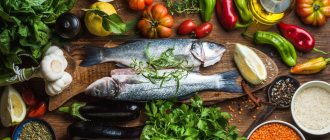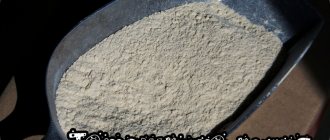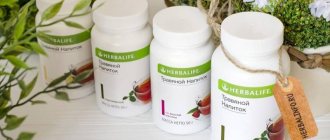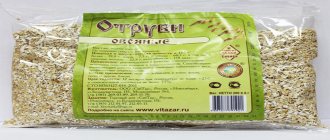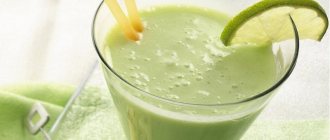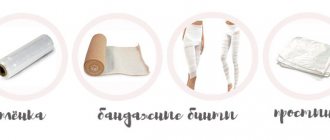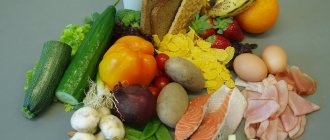What is the difference between the composition and functions of cottage cheese protein and protein. Is it possible to combine them? How much protein per day is needed? The role of sports nutrition in an athlete’s success is difficult to overestimate. The same protein is a constant source of protein, which accelerates the process of muscle growth, suppresses catabolic processes, and adds energy and strength. High-quality protein contains up to 90-95% protein, which can be quickly absorbed by the body, broken down into amino acids, released into the blood, and then to each muscle fiber cell. The result is a rapid increase in muscle mass, energy, increased strength, beautiful relief, getting rid of excess fat, and so on. In general, protein is an effective and time-tested product.
Is there an alternative?
Despite the safety of sports nutrition (in particular, gainer, protein and other supplements), skeptics still remain among athletes. Many of them prefer only natural food, but there are also those who combine sports supplements and protein. What can replace such a useful product? – Many people believe that the optimal replacement is cottage cheese. Let's look at which option is really better?
Indeed, it is impossible to overestimate the benefits of cottage cheese. This is a truly valuable product that is best taken before bed. Why at night? - It's simple. Cottage cheese is casein, that is, a slow protein. It stays in the stomach for a long time and breaks down within 3-5 hours. By eating a portion of the product at night, you can ensure that muscle cells are nourished for a long time, ensure their growth and eliminate catabolic processes.
How to take for weight gain?
Casein is suitable for weight loss and weight gain. True, the effectiveness in increasing volume is not as great as that of other products. Night protein is suitable for those athletes who have a sufficient amount of whey protein.
The rate of weight gain depends largely on what time of day the supplement is taken.
Drinking in the evening, it slows down catabolic processes and protects muscle structure from the destructive effects of the stress hormone - cortisol. Eating protein before bed helps neutralize it without additional nutrition, and helps muscles continue to grow.
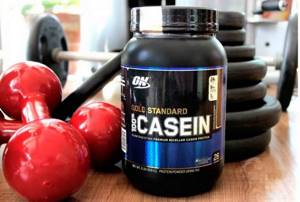
Casein also contains calcium and phosphorus, which are one of the main “building materials” for muscles. Taking protein at night is important for athletes who have a lean body structure. Without casein, it will be quite difficult for such people to maintain pumped up muscles due to catabolic processes.
What are the advantages?
Cottage cheese is a truly healing product. It is based on high-quality protein (casein), essential carbohydrates and fats. It has already been proven that taking a natural product is an excellent chance not only to gain weight, but also to increase energy levels and give additional strength. If you eat cottage cheese before training (3-4 hours), the body will withstand any stress, and the training will be completed.
The cottage cheese has an ideal composition. It contains at least 50% high-quality casein, the volume of which does not depend on the level of fat content of the product. The rest is quickly digestible protein, which allows you to nourish your muscles and give them an impetus for growth.
In addition to the described components, cottage cheese contains a large amount of calcium, which is needed by bones and muscles, and many minerals and vitamins. As a rule, homemade cottage cheese contains a whole range of useful substances - vitamins PP, C, B and A, magnesium, iron, sodium and so on. Regular protein cannot boast such a luxurious set.
The peculiarity of cottage cheese is the absence of a cellular or tissue structure. Although its “flakes” remain in the stomach for some time, they are completely digested and absorbed without residue. Another big plus is the presence of methionine, which is rich in both store-bought and homemade cottage cheese (but if you compare them, the second option is still better in composition). Why is methionine needed? This is an essential amino acid that is not synthesized by the body. Its plus is a powerful lipotropic effect, lowering cholesterol levels and preventing fatty liver.
Can it cause allergies?
As with any protein, athletes and ordinary people can experience allergies. When an individual reaction to a substance occurs, a person experiences typical symptoms:
- swelling of the lips and mouth;
- swelling of the pharynx;
- redness of the skin;
- rash and itching;
- tearfulness;
- sneezing;
- nasal congestion and runny nose.
The allergy manifests itself a few minutes after consuming the substance and requires immediate medical attention, as it can develop into angioedema or anaphylactic shock.
If bloating occurs and there are digestive problems, then this is individual lactose intolerance. The phenomenon is not entirely pleasant, but does not require immediate medical intervention. Allergies can be fatal, so if they occur, you should call an ambulance.
If it is necessary to take “live” protein, then it can be replaced with a non-dairy option, focusing on other types of caseins: egg, soy or a combination of vegetable ones.
If you need to saturate your body with proteins, whey protein is the best option. It contains a sufficient amount of useful components that gradually nourish the tissues. This is how its properties are expressed to maintain muscle structure and promote weight loss. Only if there is an allergy is not worth the risk. Even in small doses and with antihistamines, serious complications can be caused. You can replace the substance with products without caseinate or choose another complex when gaining weight.
THESE ARTICLES WILL HELP YOU LOSE WEIGHT
Your feedback on the article:
( 2 ratings, average: 4.50 out of 5)
Reception features
Cottage cheese and protein are still different products. The first is based on casein (slow protein), carbohydrates, fats, vitamins, minerals and other useful components. Protein is more limited in this regard. As a rule, it contains only protein - it can be slow, fast, or mixed in equal proportions. At the same time, manufacturers keep up with the times and make their products more and more useful for athletes. In the new complexes you can find not only protein, but a number of other components - useful amino acids, vitamins, and so on.
Many athletes pose the question point blank: “Which is better?” Some say it's cottage cheese, others say it's protein. But ideally, it is better to combine these products. We must not forget that cottage cheese is mostly casein protein. It needs time to be digested and enter the bloodstream. Therefore, the best times to take it are before bed, before training (usually 2-3 hours), or 15-20 minutes after leaving the gym. But in the latter case, cottage cheese is not always effective. Of course, it will provide the body with protein for growth, but due to prolonged breakdown, you can miss the protein-carbohydrate window.
Protein is a more versatile product. If you buy a fast protein supplement, you can safely take the product early in the morning, immediately before or immediately after a workout. In this case, within 40-50 minutes the body receives the necessary nutrition, and the muscles receive the necessary growth.
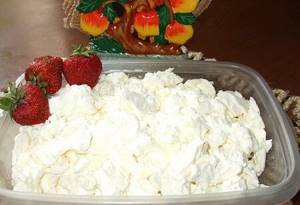
What is casein?
The casein content of cow's milk is 80%, if we take into account the total amount of proteins. It contains almost the entire spectrum of amino acids that support muscle growth.
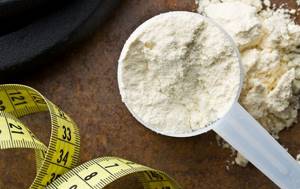
Their slow release procedure blocks the breakdown of muscle tissue, slows down the digestion process and the breakdown of protein, another component of milk casein. This is a natural adhesive component that partially neutralizes the effect of gastric juice.
You can take casein whey during the day between meals. Although, due to its slow breakdown and digestibility, it is called night protein and it is recommended to leave it in the evening.
There is no need to fear the occurrence of digestive upset if the dosage is followed, because it does not contain a lactose component that provokes diarrhea. There is another danger - casein intolerance. Due to insufficient production of enzymes responsible for processing dairy products, a certain percentage of people experience unpleasant symptoms in the digestive organs after taking night protein. They are not as dangerous as casein allergies, but they cause a lot of suffering.
About the protein norm
We must not forget another important point - the daily portion of protein. How much protein does an athlete need per day? As a rule, from 2 to 4 grams, depending on the loads and tasks. For example, if an athlete weighs about 100 kilograms, then the minimum amount of protein per day is 200 grams.
What we have? Cottage cheese is a product high in essential protein. But 100 grams of product contains only 15-17 grams of protein. This means that to replenish the daily requirement you need to eat 1.3 kg of cottage cheese. The challenge is real. But just imagine that such a volume of cottage cheese is needed every day.
Protein wins in this regard. There are about 85-95 grams of protein in 100 grams of product. This means that to cover the norm, only 200-210 grams are needed, which is much easier to implement in practice. If you do some simple cost calculations, protein isn't that expensive.
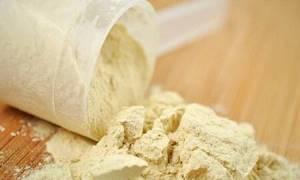
What products does it contain?
Night protein is present in all dairy products. The largest amount of the substance is in goat and cow milk – 80%. In other types of lactation product it is less and the figure is 50% in:
- mare;
- sheep;
- donkey
All types of milk contain casein. What other foods contain this protein? Curd products and cheeses are rich in it. The casein content is 20% in cottage cheese, and in hard cheese – 30%. Less than 20% night protein in yogurt, kefir and other fermented milk products.
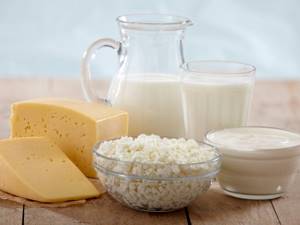
Ready-made micellar casein, which can be bought in retail chains, is isolated from whole milk. People use it as a dietary supplement for:
- systematic training in strength sports;
- heavy physical activity;
- diets aimed at weight loss.
And also on the special recommendation of a doctor in case of insufficient development of muscle mass.
The benefits and harms of casein
Many of us know how healthy cottage cheese is, not realizing that this product, familiar from childhood, consists mainly of casein. Its content of useful microelements, valuable amino acids and high bioavailability make this protein indispensable in the diet of any person, not just athletes.
Among newcomers to sports, the question often arises: can casein be replaced with regular cottage cheese? Yes, you can, because these products have the same amino acid profile. But sports shakes contain about 70% protein, while cottage cheese contains only 15-18%. In addition, casein contains less fat and is easier to digest by the body.
If we talk about the dangers of casein, then we should not forget that this type of protein, like any other product, can cause allergies. And excessive consumption of cocktails can negatively affect the functioning of the kidneys and liver. Experts do not recommend drinking more than 5-6 servings per day.
How is cottage cheese good for the body?
Cottage cheese is one of the important components of a bodybuilder’s diet. Numerous studies confirm this fact. A lot depends on its use, and we will look at what exactly in this publication.
Let’s immediately determine which cottage cheese is healthier: low-fat or full-fat? There is no clear answer. If you are on a diet and count every calorie, then you need to eat low-fat cottage cheese, besides, calcium from it will be better absorbed. But on the other hand, fats are necessary for our body for health, hair skin, and so on.
Conclusion: with a balanced diet, when the body has enough fats and other nutrients, it is better to eat low-fat cottage cheese. Otherwise, fatty will do the trick.
What is contained in cottage cheese?
Cottage cheese is a fermented milk product. It comes in fat (18%), low-fat (3%) and semi-fat (9%). Is it worth reminding that high-quality cottage cheese contains proteins, fats, long-term carbohydrates, as well as vitamins, calcium, casein...
All these “comrades” help maintain energy in the body. As for casein, which has a disintegration time of 4 hours, it allows you to feed the body with protein for as long as 5 hours, which is especially valuable for bodybuilders.
The bulk of the protein contained in cottage cheese has a fast breakdown chain, so consuming this food will help you recover after a workout quickly and efficiently.
How much protein is in cottage cheese?
The protein content of cottage cheese is always indicated on the packaging if you bought it in a store. It is difficult to say how much protein is in cottage cheese, which is sold by weight on the market. The production technology and the raw materials themselves have not been determined. But you can count on the grandmothers having a higher quality product.
Approximately how many grams of protein are in cottage cheese of different fat content per 100 grams of product:
- homemade cottage cheese - about 15 g
- low fat - from 18 to 22 g
- fat content 5% - 21 g
- fat content 9% - 16 g
- fat content 18% - 14 g
Calcium contained in fermented milk products is, without exaggeration, very important in the process of high-quality muscle growth. Cottage cheese also contains a lot of vitamins A, B, C, PP, phosphorus, iron, zinc and magnesium. Any nutritionist will confirm to you with confidence that the more useful substances a product contains, the more valuable and healthy it is. Now we’ll find out how much protein is in cottage cheese and other useful elements.
For reference, 100 grams of cottage cheese contains:
- 120 Kcal,
- 18 grams of protein,
- 0.5–18 grams fat,
- 164 mg calcium,
- 220 mg phosphorus,
- 0.4 mg iron,
- 0.5 mg vitamin C,
- 0.08 grams vitamin A,
- 0.4 mg B vitamins.
As you can see, the list is more than impressive. Your body will definitely say “Thank you” to you!
Dinner Recipes
For dinner, it is better to use berries and fruits as additives.
The most suitable for this are strawberries or pineapple, as they are fat burners. It is recommended to drink a protein shake half an hour after exercise.
It is not recommended to add sugar, honey, ice cream and other easily digestible carbohydrates to a protein shake made from cottage cheese, which replaces dinner. The drink should be consumed no later than 6 pm.
Kiwi and banana
- 200 g cottage cheese;
- kiwi;
- banana;
- 1 glass of juice (or water).
Cherry cocktail
- 150 ml cherry juice;
- 1 egg;
- cottage cheese 100 g.
Bran and milk
- bran - 2 tsp;
- baked milk 200 ml;
- cottage cheese 100 g;
- linseed oil - 1 tbsp.
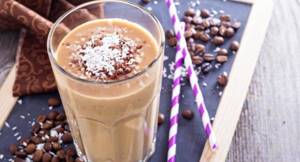
Cottage cheese after workout for weight loss
Cottage cheese is recognized as an ideal product for weight loss, as it contains a lot of protein and a small amount of carbohydrates. To achieve the best effect, it should be consumed approximately 30-40 minutes after training. 150 grams of a product with medium-low fat content (3-5%) is enough.
Cottage cheese is good because it relieves the feeling of hunger for a long time and does not allow you to “break out” if a person follows a diet and limits himself in nutrition. You can eat it at any time of the day - for second breakfast, as a snack, at night.
Important. Low-fat cottage cheese is in no way suitable for weight loss, since in the absence of fat the hormone calcitriol is not activated - it is this that starts the process.
The dairy paradox of cottage cheese or What you need to know about milk/cottage cheese in bodybuilding
The problem that Lindover talks about is the high insulin index of cottage cheese. This is true.
(In the video he mistakenly uses the glycemic index, which is incorrect: cottage cheese has a low glycemic index.)
The glycemic index is an indicator of the effect of foods on blood glucose levels. In a healthy body, a natural reaction to an increase in glucose concentration is an increase in the hormone insulin in the blood, whose task is to control glucose.
Insulin or insulinemic index is an indicator of the effect of foods on the level of insulin in the blood.
A high insulin index of a product indicates that after its consumption there is a significant increase in insulin levels in the blood.
Despite the fact that dairy products contain virtually no carbohydrates, which are known to trigger the release of insulin, their consumption also significantly increases the level of this hormone.
We recommend : Carbohydrates in sports and bodybuilding: functions, how many carbohydrates are needed to gain muscle mass, how and when is the best time to take them?
Insulin index of cottage cheese. Scientific research
We were able to find only one study confirming the effect of dairy products on blood insulin levels (high insulinemic index).
In it, scientists set a goal to find out how adding milk to carbohydrate foods (bread and spaghetti) affects insulin levels in cut 8. In other words, whether dairy products, despite their NOT carbohydrate nature, stimulate a rise in insulin levels in the blood.
The experiment showed that eating a serving of spaghetti with just 200 ml of milk caused an increase in blood insulin levels by 300%! compared to spaghetti on water 8.
This is the milk paradox: insulin increases when consuming cottage cheese, but the level of glucose in the blood remains low.
What does insulin have to do with it?
To understand the logic of Lindover's reasoning and whether he is right or wrong, it is necessary to understand what insulin has to do with muscle relief or, in a broader sense, weight loss/obesity.
There is an opinion that high insulin levels are associated with obesity and, accordingly, interfere with losing weight or drying up the body.
One of the likely primary sources of this hypothesis is the known fact that overweight people tend to be “lovers” of carbohydrates, especially sweet or simple ones.
Excessive consumption of carbohydrates (especially simple ones) is indeed one of the main causes of obesity, but not because they stimulate the release of insulin, but primarily because they are a source of easy energy that insulin helps transport.
Let's touch on this issue in a little more detail.
Share with us your experience of losing weight or gaining muscle mass!
We recommend : Sports and joints: the risk of joint diseases in athletes, the most dangerous sports, symptoms, prevention and treatment of osteoarthritis. Scientific research
How insulin works
Insulin is a transport hormone whose task is to control sugar (glucose) in the blood.
We ate sweets - the glucose level increased - the pancreas released insulin - the sugar level returned to normal. “Back to normal” means that insulin transported part of the glucose (which is the primary source of energy) to the muscles for use, another (excess) was sent for short-term storage in the form of glycogen in the muscles and liver, and the third was sent for long-term storage in fat.
In other words: the higher the insulin level, the easier it is to gain fat mass, as well as muscle mass , since it helps deliver nutrients to the muscles.
This is why insulin is known in bodybuilding as a powerful anabolic hormone.
Obviously, the condition for gaining fat mass is the presence of carbohydrates in the blood : the more of them, the “better”.
However, with regard to cottage cheese and other dairy products, the energy or “carbohydrate” hypothesis of its negative effect on muscle relief does not work, since there are very few carbohydrates in it and there is NOTHING for insulin to replenish fat storage... unless the loaf is washed down with milk , for example.
It turns out that a possible reason, if there really is one, lies in the insulin itself.
Dairy products, including cottage cheese, increase insulin levels in the blood: this is good for gaining muscle mass, but in combination with carbohydrates can increase fat mass
So what problem is Lindover talking about? Why do all the pros remove milk from the diet when “drying” the body?
We recommend : Side effects of insulin in sports: overdose, coma, death
How long after training can you eat cottage cheese?
Immediately after training you should not eat anything, not even cottage cheese. It is necessary to wait approximately 30-40 minutes so that the body has time to use up existing fat reserves. If you break this rule, recovery will occur due to the arrival of a new “portion”, due to which the effect of training will be zero or even the opposite.
How much cottage cheese should you eat?
The daily intake depends on the weight of the athlete and the goals set for him. If we consider cottage cheese as the only supplier of protein, then you will need about 500 grams per day. Eating such an amount of product is quite problematic. For those who are losing weight, about 200 grams of product per day is enough, for those who are interested in building muscle mass, the daily norm will be approximately 300 grams.
How to make delicious cottage cheese?
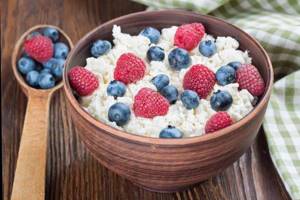
There is no point in talking at length about the benefits of milk; it is enough to remember that for the first days of his life a person feeds exclusively on mother’s milk. It contains all the substances necessary for the development of the body. Cottage cheese, being one of the products of milk processing, is very useful. However, if you use it for a long time, you will get tired of it.
To diversify your diet, you can use a mixer to turn the product into curd mass and add your favorite fruits. If you are actively involved in bodybuilding and are currently gaining weight, we recommend mixing cottage cheese with a protein supplement and glutamine. If you do not have a tendency to gain fat, in the first half of the day you can eat cottage cheese mixed with sugar and sour cream. The resulting product will be quite high in calories, but you will need a lot of energy throughout the day. But you shouldn’t do this before going to bed.
How a sports supplement helps you lose weight
Before drinking casein, you should find out what effect you can expect from sports nutrition.
The absorption of slow protein occurs on average in 8-10 hours. Such a long absorption allows you to maintain the necessary amino acids in the human body for several hours, which affect the muscle building that occurs at night.
Weight loss occurs due to several actions of casein:
- The body is saturated with all necessary amino acids and microelements. There is no need to get them from food.
- Protein is absorbed more slowly.
- Due to this, muscles are preserved even during night sleep, and fat accumulation slows down.
Casein is an ideal addition to a sports diet. With its help, you will not feel hungry, but at the same time you will not exceed your calorie allowance for the day.
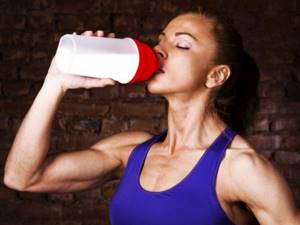
But for the supplement to work correctly, you need to understand how to drink casein correctly.
Which cottage cheese should athletes choose?
Let's first find out what types of this product exist:
- Acid rennet – produced from pasteurized milk using a special rennet enzyme and lactic acid.
- Acid curd - to prepare the product, skim or pasteurized milk is used, and only lactic acid.
- Separate - first, low-fat cottage cheese is made, and then the resulting product is mixed with cream. As a result, you can get cottage cheese with any fat content.

We have already said that athletes need to pay attention to the fat content of the product. The best choice would be low-fat or low-fat cottage cheese. At night, we recommend consuming grain curd, which is curd grains mixed with a certain amount of cream. This product has a fairly low energy value, which is about 155 calories for every hundred grams of cottage cheese.
You should not pay attention to the various curd cheeses and masses that are present in abundance on store shelves. They contain a lot of fat and sugar, which is unacceptable. Any bodybuilder wants to progress and for this he tries to choose only a high-quality product. Choose only cottage cheese that has a crumbly consistency.
Low-fat cottage cheese may contain a minimal amount of whey. Its taste and smell should be fermented milk, and its color should be white, with a slight creamy tint. If you decide to buy a first-grade product, it may have a slight taste of wood and bitterness. It is also necessary to pay attention to the date of production of cottage cheese, because the maximum shelf life of this product is only one week.
Afterword
Despite the fact that cottage cheese and other dairy products stimulate the release of insulin, their consumption does not lead to fat gain. The “high insulin = obesity” hypothesis is just that, a hypothesis.
In moderation, cottage cheese is a good product for health, muscle gain and weight loss. The answer to the question “when is the best time to eat cottage cheese and is it possible at night?” depends entirely on your goals.
Dairy products with carbohydrates have a gainer effect. For weight loss and when drying the body, it is better to avoid this combination.
Consumption of dairy products is harmful to the terrain.
Casein (micellar) can be better than cottage cheese only when “drying” the body.
Useful tips
When choosing dairy products, you must carefully read their composition. Even natural milk and cottage cheese do not always have the same benefits. You need to buy products that contain a minimum of sugar, preservatives, foreign additives and flavor enhancers.
It is not recommended to consume milk, cheeses and cottage cheese for breakfast. Apart from the fact that they create a burden for a hungry stomach, their benefits are minimal. Valuable lacto- and bifidobacteria are neutralized by large amounts of hydrochloric acid. It is best to eat protein foods an hour after your main breakfast or lunch.
Attention! Casein protein in products can be consumed simultaneously with aspirin, paracetamol and other non-steroidal anti-inflammatory drugs. But medications based on penicillin and tetracycline must be taken separately from dairy products, otherwise their effectiveness will decrease.
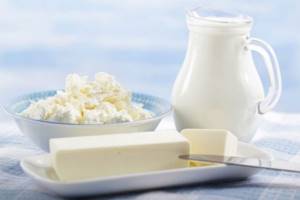
When consuming casein foods, you need to monitor the balance of fats and carbohydrates


